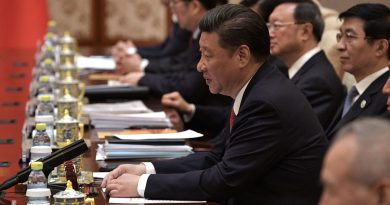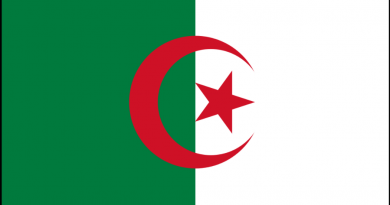As Corruption Hunt Continues, Party Elite Name Xi Jinping as ‘Core’ Leader
By Brian Kulpan
Staff Writer
The Communist Party of China’s elite Central Committee convened for its sixth plenary session in Beijing in the last week of October. During the session, President and General Secretary Xi Jinping was given the title of “core” leader, a prestigious title that puts him in a league with Mao Zedong and Deng Xiaoping, according to Reuters.
Since he succeeded Hu Jintao as president in 2012, Mr. Xi has faced festering public discontent concerning endemic corruption, bourgeoning economic inequality, uneven social development, and a greater shift towards regionalism. For the past four years, Mr. Xi has focused on solidifying public confidence in the party. For the remainder of his term, however, it appears that he has set a primary goal of institutionalizing his crackdown on corruption.
Mr. Xi has waged war on corruption for the past four years and claims that the severity of the problem carries the potential to weaken the Communist Party’s grip on power. According to the BBC, the party’s corruption watchdog, the Central Committee for Discipline Inspection, reported that Mr. Xi has punished over one million dissidents since 2013. Those exposed in the anti-corruption campaign range from low-ranking public officials to military generals and senior ministers. In addition, members of the media and business sectors fell prey to the sting.
Suspected dissidents who have fled China and sought refuge abroad are not safe from this purge. According to Bloomberg, by means of covert security operations called Sky Net and Fox Hunt, the state’s intelligence services have cracked down hard to shutter underground banks, recover misappropriated assets, and stem the flow of dirty money through gambling facilities. The government said the majority of corruption suspects were found guilty of bribery, abuse of power, and money laundering.
In a statement issued by the government regarding the plenum, Mr. Xi announced the implementation of a series of rigorous reforms that will accelerate his consolidation of power. Reuters reports that the new political reforms include intra-party supervision, requiring any publicity featuring party leaders to be based on facts instead of boasting, ending the purchase of party positions, and expunging external interference from the selection process.
Wu Yuliang, vice secretary of the Central Committee for Discipline Inspection, offered a fitting analogy to defend the four-year anti-graft operation. “When uprooting rotten trees one has to start with the most rotten ones. If that is called selective I have to say this is just the way we do our work,” he said, according to the AP.
Beyond the Central Committee’s historic recognition of Mr. Xi’s leadership, questions remain pertaining to the future of the party, including the nomination of a potential successor to Mr. Xi or the possibility of his serving a third term.



